Guide/Manual
Aug 16 2023
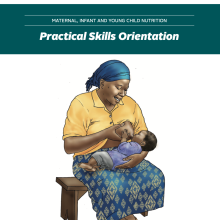
Alive & Thrive Nigeria MIYCN Practical Skills Training Manual
This manual can be used as part of an in-service orientation/training for newly employed or deployed health professionals working in MIYCN. It can also be used to train existing primary healthcare (PHC) workers on essential MIYCN services that can be integrated into PHC services.
Toolkit
Apr 05 2023
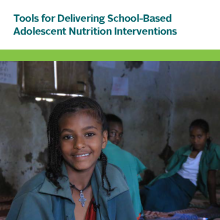
Tools for Delivering School-Based Adolescent Nutrition Interventions
This catalogue presents school-based adolescent nutrition program leaders and implementers with a descriptive list of effective tools for delivering SBC-based adolescent nutrition interventions at scale.
Brief, Handout
Oct 28 2020
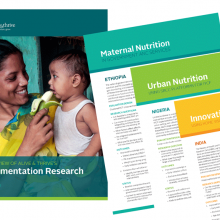
An overview of Alive & Thrive's implementation research
Alive & Thrive's implementation research spans its program areas, seeking to answer "how" to implement effective interventions and policies. Active studies are detailed in the attached documents.
Brief, Handout, Poster/Graphic, Report
Sep 19 2019
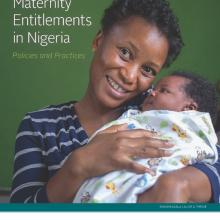
Maternity Entitlements in Nigeria: Policies and Practices
Despite globally accepted knowledge on the benefits of breastfeeding and the contribution of maternity entitlements to increasing rates of exclusive breastfeeding, there has been little research on how maternity or paternity leave is practiced in Nigeria, the labour force’s level of compliance, o
Toolkit
Oct 01 2017
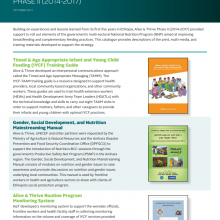
Alive & Thrive Ethiopia multimedia and training catalogue
Building on experiences and lessons learned from its first five years in Ethiopia, Alive & Thrive Phase II (2014-2017) provided support to roll out elements of the government’s multi-sectoral National Nutrition Program (NNP) aimed at improving breastfeeding and complementary feeding practices
Guide/Manual
Dec 28 2015
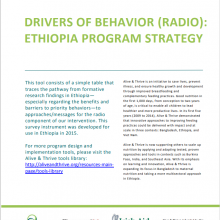
Drivers of behavior (radio): Ethiopia program strategy
This tool consists of a simple table that traces the pathway from formative research findings in Ethiopia— especially regarding the benefits and barriers to priority behaviors—to approaches/messages for the radio component of our intervention.

